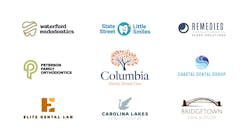You sit down with a new patient.
You pull out the same models, walk them through why a bridge fails, why partials are a nightmare, why implants are the best option.
They nod. They ask a few questions.
Then you hit them with the price.
And suddenly, the energy shifts.
"Wow, that’s a lot."
"I need to talk to my spouse."
"I wasn’t expecting it to cost that much."
And just like that, they’re gone. No follow-up. No treatment. Just another consultation that went nowhere—another 30 minutes wasted. It’s frustrating, but it’s also completely avoidable.
If you want a profitable, fulfilling implant practice, the goal isn’t just to get more leads. It’s to get the right patients—the ones who already know implants are their best option, are financially ready, and come to their consultation expecting to move forward.
This isn’t about hard selling. It’s about creating a process that brings in better patients, increases case acceptance, and helps you focus on dentistry—not convincing people to say yes.
The best implant dentists aren’t stuck in this cycle. They’re not chasing leads. They’re not dealing with price objections. They’re not trying to “sell” implants. They’re only meeting with pre-educated, prequalified patients who already know the value of implants, understand the cost, and come to their consultation expecting to move forward.
This isn’t about learning how to “close” better. It’s about fixing the process so the right patients walk through the door in the first place.
Not more leads, better leads
Most implant dentists believe that the key to growth is more leads. More consults. More marketing. More people asking about implants.
But have you ever done the math?
Take a look at how many new consults you had last year. Now, how many of those patients actually moved forward? If you’re like most implant dentists, you don’t have a lead problem—you have a case acceptance problem.
Leads don’t pay the bills. Booked cases do. And case acceptance doesn’t come from seeing more patients—it comes from seeing the right patients.
Retention and prequalification drive case acceptance
If you’re spending hours every week explaining implants to people who were never going to say yes, you’re wasting time that could be spent treating patients. That’s why the top implant dentists do things differently. Instead of trying to convince everyone, they make sure that only prequalified, serious patients make it through the door.
Here’s how they do it:
- They pre-educate patients before the consult, answering objections before they even arise.
- They prequalify patients financially. No more, “Oh, I didn’t realize implants were expensive.”
- They position themselves as the go-to expert so patients aren’t comparing them to the cheapest option in town.
It all comes down to who you let into your schedule. If you fix that, everything changes.
3 steps to bring in patients who say yes
1. Prepare patients before they walk in the door.
Most implant dentists wait until a patient is sitting in the chair to start educating them about implants. By that point, it’s already an uphill battle. They’re skeptical. They’re unsure. They’re waiting for a reason to hesitate. And when they hear the price? That’s the final push they needed to walk away.
But if you educate them before they book the consultation, everything changes.
- Teach them why partials and bridges fail. Show them what happens long-term, not just the short-term cost difference.
- Help them see implants as an investment, not an expense. When they understand the lifetime value, price becomes less of a barrier.
- Explain financing options upfront. When patients know they can break up the cost over time, they’re far more likely to move forward.
This can be done through a simple, structured email sequence that walks patients through their options. A preconsultation video is a great option to answer any big questions before they step foot in the office. Finally, a phone call with the front desk will set expectations before they arrive.
By the time they meet you, they’re already 90% convinced.
2. Only meet with patients who are financially ready.
Not every patient is ready for implants—and that’s okay.
What’s not okay? Spending time on consults with people who were never financially prepared in the first place. That’s why prequalification is key.
- Be upfront about cost in your marketing and pre-education process. If they know the price before they book, there’s no sticker shock.
- Ask the right questions before scheduling a consult. Are they looking for a permanent solution, or just exploring options? Do they understand that implants are a premium, long-term treatment? Are they open to financing options if needed?
This doesn’t mean turning away patients—it just means making sure that when you sit down for a consult, you’re talking to someone who’s actually ready to move forward.
3. Make consultations about confirmation, not convincing
Once you have the right patients walking through your door, the way you run consultations completely changes. Instead of selling, you’re simply confirming what they already know. Instead of answering the same basic questions, you’re helping them take the final step.
Your role becomes:
- Making them feel confident in their decision
- Answering any final concerns
- Mapping out their personalized treatment plan
No hard sell. No awkward price conversations. Just an easy, natural process that leads to a yes.
The result? More patients, less work, higher profits
When you pre-educate and prequalify your patients before they book:
- You stop wasting time on consults that go nowhere.
- You see higher treatment acceptance—without selling.
- You eliminate price objections before they even come up.
- You focus on dentistry, not chasing leads.
Most importantly, you build a practice that works for you, not the other way around. Because at the end of the day, it’s not about how many people come through the door, it’s about how many say yes.
Editor's note: This article originally appeared in DE Weekend, the newsletter that will elevate your Sunday mornings with practical and innovative practice management and clinical content from experts across the field. Subscribe here.









